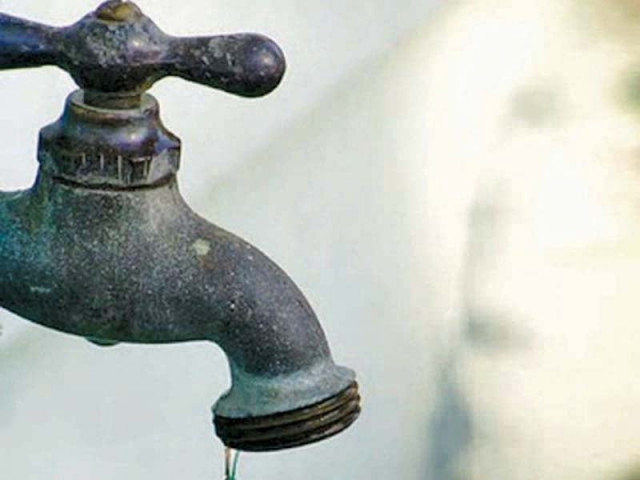Core component: Water mismanagement set to drown country
Authorities fail to take action despite importance of resource.

Unfortunately, despite possessing glaciers, Pakistan remains one of the world’s most water-stressed country.
Why is that? One simple conclusion is our failing water management strategies.
A further cause for alarm is the rapid rate of global warming. Nearly one-fifth of the glaciers in this region have disappeared over the last 30 years and in the next 20 it is expected that they will disappear completely.
Impact will be devastating as the entire population downstream depends on them for food, energy and cultivation.
Despite knowing that the sword is hanging over our heads, the administration and politicians continue to procrastinate.
At the time of partition, India had 344 dams while Pakistan had only 1. Today, India has 4,710 completed large dams and 390 are under construction, while Pakistan has only 143. To meet our current needs, we need over 500.
Pakistan’s storage capacity today, which should ideally be around 1,000 days given its climate and resources, stands at a meagre 30-day supply.
Due to lack of water storage capacity, Pakistan loses 13 million cusecs every year into the Indian Ocean, which also creates huge devastation through yearly floods.
On the other hand, during periods of reduced water flow, seawater damages up to 100 kilometres of cultivable lands. Being a country where 90% of the water resources are used for agriculture, poor water management can be devastating.
Since the Indus Water Treaty (IWT) signed in 1960, India has taken undue advantage and has created more dams than allowed to worsen the water situation in Pakistan. It is reported that Pakistan deliberately did not show up at the last IWT dispute hearing at the International Court of Arbitration in Geneva, thus permitting India with the over construction of Kishanganga Hydropower project on river Neelum in violation of IWT.
Addressing the water crisis is necessary to ensure future economic development as well as the survival of the growing population. Global warming, climatic changes and regional politics further exasperate our situation.
Being an agriculture-based country, our food security continues to deteriorate since 2003; in 2014 we stood at 77th position among 107 on Food Security Index. Food security is inadequate in 61% of the districts. Pakistan’s economic and social stability depends on how well we can overcome this imminent water crisis before it is too late to do anything.
We need to appoint qualified and trustworthy people to protect and guard Pakistan water rights as envisioned in the IWT. Bottomline, we desperately need a comprehensive yet sustainable strategy to cope with this life-threatening challenge to our very existence.
The writer is associated with the corporate sector
Published in The Express Tribune, September 22nd, 2014.
Like Business on Facebook, follow @TribuneBiz on Twitter to stay informed and join in the conversation.



















COMMENTS
Comments are moderated and generally will be posted if they are on-topic and not abusive.
For more information, please see our Comments FAQ